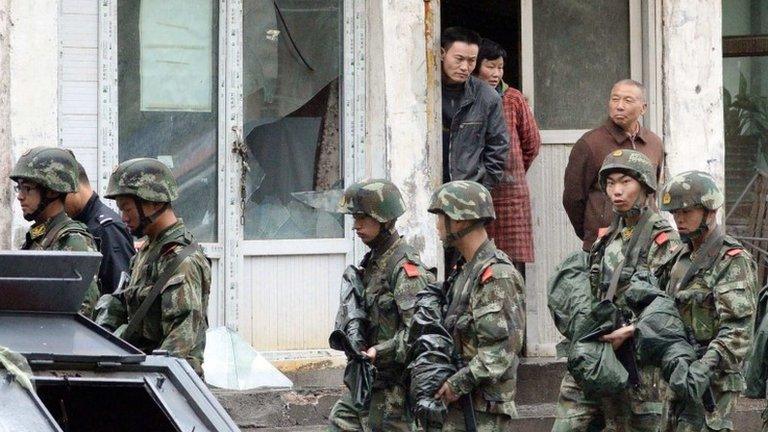China Uighurs: Xinjiang city of Urumqi to ban Islamic veil
- Published
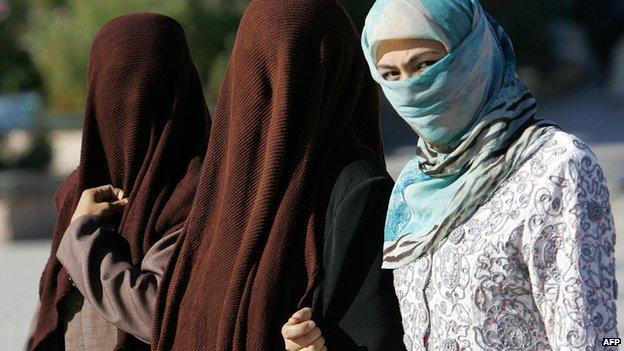
The Islamic veil has grown increasingly popular among the Muslim Uighurs of Xinjiang
The Islamic face veil is to be banned in public in the capital of China's restive Xinjiang region, home to its Uighur Muslim minority.
The ban was backed by local authorities in Urumqi, state media reported.
The move is the latest in a campaign against Islamic clothing and symbols in the mainly Muslim region.
China's government has blamed Uighur militants for several recent attacks - but activists say the violence has been fuelled by Chinese repression.
The Uighurs traditionally practice a moderate form of Islam. Recently, though, the influence of stricter forms of the faith from the Gulf and Pakistan has led to more women covering their faces.
According to the BBC's Asia Pacific editor, Charles Scanlon, the Chinese authorities regard wearing an Islamic face veil as an act of defiance at a time of growing violence in the region.
In August this year, the northern city of Karamay banned men with long beards from boarding buses.
Some experts believe such restrictions could backfire at a time when many Uighurs believe their culture is under attack.
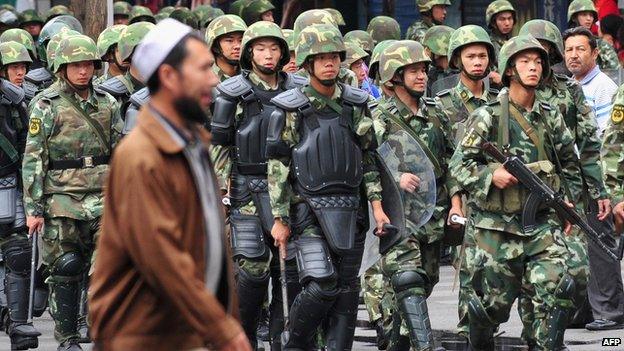
China has maintained tight security in Xinjiang amid fears of Uighur separatism
James Leibold, an expert on China's ethnic policy at Melbourne's La Trobe University, told Reuters news agency that the ban on the veils would make them "more popular as a symbol of resistance and assertion of ethno-national identity".
He is quoted as saying that China's Communist party had made a direct link between certain Islamic dress styles and religious extremism.
The law passed in Urumqi is set to come into force after it has been approved by a regional body.
China's authorities have attributed a wave of recent violence, some of which has targeted civilians in public places, to Uighur militants inspired or aided by overseas terror groups.
It has launched a crackdown in the region, arresting and jailing scores of people.
But Uighur activists say that China's strong-arm tactics in Xinjiang - including cultural and religious repression - are fuelling tensions.

Uighurs and Xinjiang
Uighurs are ethnically Turkic Muslims
They make up about 45% of the region's population; 40% are Han Chinese
China re-established control in 1949 after crushing short-lived state of East Turkestan
Since then, there has been large-scale immigration of Han Chinese
Uighurs fear erosion of their traditional culture

- Published23 September 2014
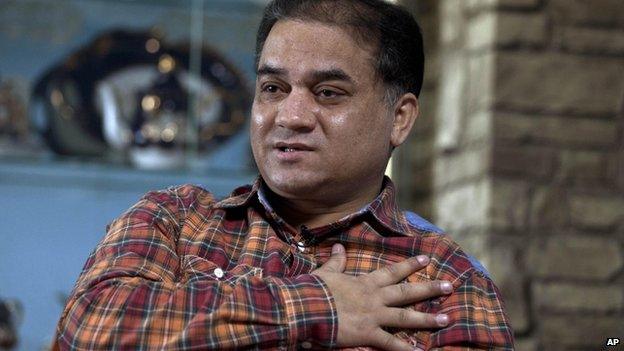
- Published7 December 2014
- Published16 September 2014
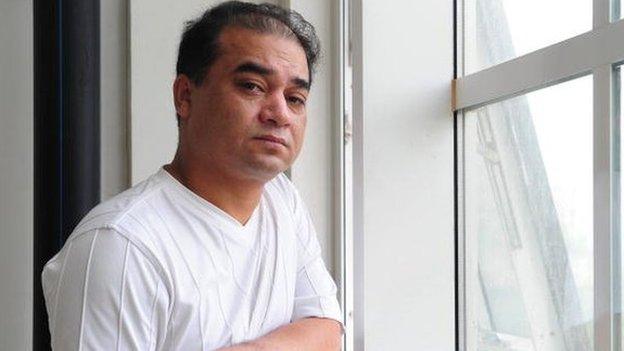
- Published17 September 2014

- Published23 May 2014
